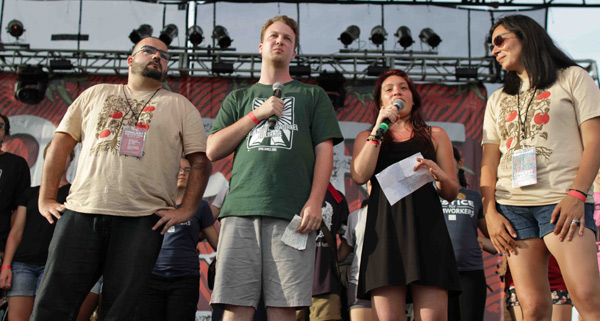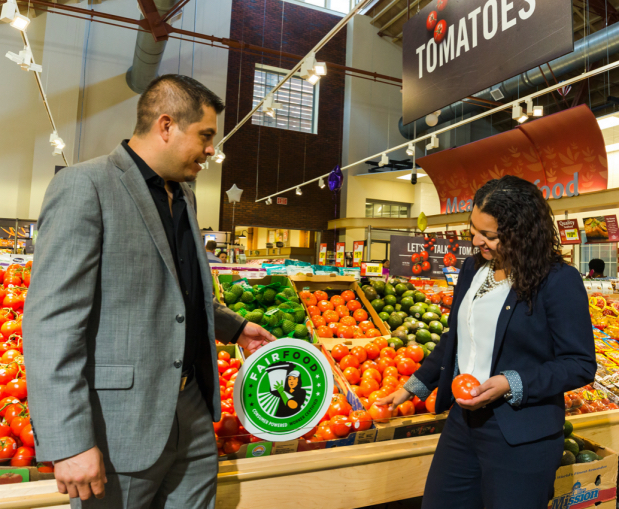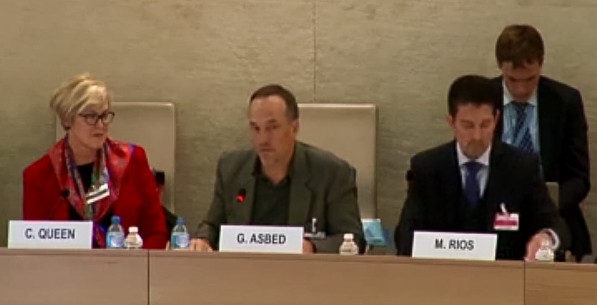After a year packed with such spectacular highlights, 2016 promises to be a pivotal year for the Fair Food movement…
It’s that time of year again, when we take a moment to look back on the events of the past year — on the remarkable progress we have all made together in just twelve short months — and to reflect on what new advances, and challenges, the year ahead might hold for the Fair Food movement.
2015 was a banner year in the fight for Fair Food, so much so that choosing which stories to highlight was no easy task! The year wasn’t a week old when we announced the newest Fair Food agreement, with the high-end grocery leader Fresh Market. But growing market support for the Fair Food Program hardly ended there, with mainstream grocery giant Ahold joining the program six months later and FFP partners like Compass Group formally embracing the expansion of the program to new crops and new states.
And speaking of expansion… the Fair Food Program made its way north into six new states along the eastern seaboard in 2015, while the Worker-driven Social Responsibility (WSR) model itself marked its first milestone on what is sure to be a long road of expansion with the agreement between Migrant Justice in Vermont and Ben & Jerry’s to implement the Milk with Dignity Program in Ben & Jerry’s northeast dairy supply chain.

Meanwhile, back here at ground zero for Fair Food, real, measurable advances continued in the fields. The Fair Food Program completed its fourth full season in operation and consolidated its gains for workers across the board, from wages (with now nearly $20 million paid out in Fair Food bonuses) to working conditions (with now nearly 1,200 complaints investigated and resolved since the launch of the program in 2011). 2015 also saw the CIW and the Fair Food Standards Council break new ground in the prevention of sexual harassment and sexual assault with the debut of an historic new curriculum developed in partnership with Pacific Tomato Growers and Futures Without Violence (below, the CIW’s Nely Rodriguez helps lead the first-ever training employing the new curriculum at Pacific’s offices outside Immokalee in December).
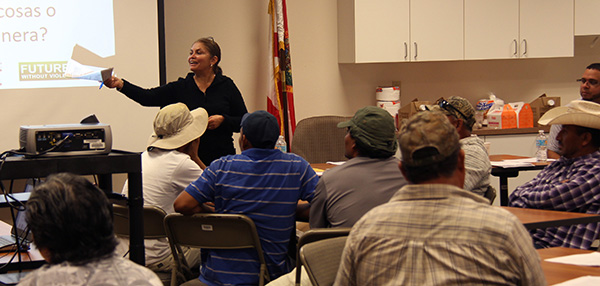
These spectacular advances prompted recognition of the Fair Food Program at the highest levels this past year. In January, the CIW received a Presidential Medal for its efforts to combat modern-day slavery and for “leveraging market forces and consumer awareness to promote supply chain transparency,” marking one of two times the CIW was invited to the White House in 2015. And in December the CIW was invited to the United Nations in Geneva to speak about the Fair Food Program as a “powerful example of the Protect, Respect, and Remedy pillars (of the UN Guiding Principles).”
But the recognition of the FFP didn’t end there. “Food Chains,” the 2014 documentary on the CIW and the Fair Food movement received the prestigious James Beard Award for Documentary Film this year, while the FFSC’s Executive Director Judge Laura Safer Espinoza was recognized for her own extraordinary contributions to social justice with the 2015 Purpose Prize. Media coverage of the Fair Food Program kept pace with the program’s growing recognition, with high profile stories on CBS News Sunday Morning and on National Public Radio stations across the country, to name just two.
From this whirlwind year of progress we have selected six special highlights below, moments from 2015 that merit one last look before we move on to 2016 and the work that awaits us in the year ahead. And just what will 2016 bring for the Fair Food movement? Your guess is as good as ours, but we can be pretty sure of a few things.
There will be new Fair Food agreements in the coming year, and the Fair Food Program will continue to expand on its gains for workers on the ground, with a particular focus on new crops, including strawberries and peppers here in Florida (will international expansion be far behind?…). And the media will continue to discover the remarkable story unfolding in Florida’s fields, Vermont’s dairy farms, and in workplaces around the country where low-wage workers take up the WSR model to demand better wages and fair working conditions from the brands that profit from their labor.
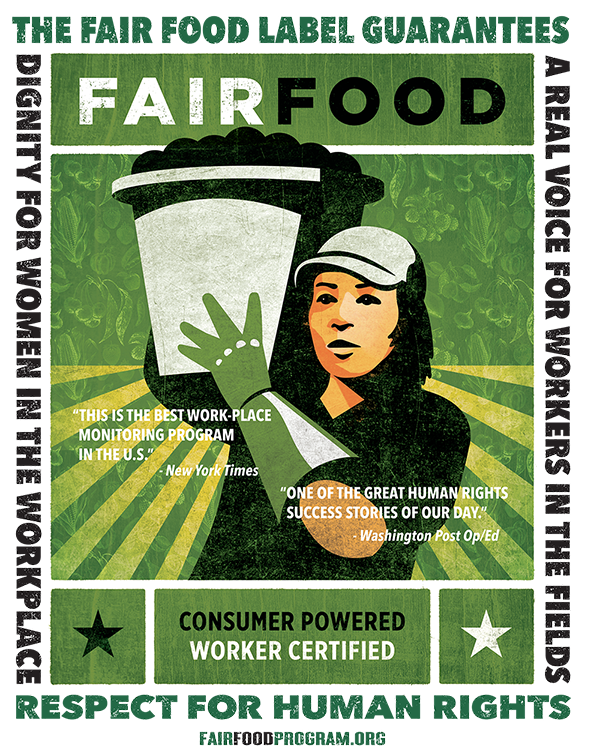
The pivotal narrative of the year ahead, however, might not lie in any of those familiar stories, but rather in a battle looming on the horizon, the lines of which are just coming into focus as 2015 winds down and the new year dawns. That battle is for the definition of real, verifiable social responsibility in the 21st century, of what we — workers and consumers — will demand of corporations when it comes to protecting human rights in corporate supply chains in the years ahead.
The old paradigm of corporate-defined codes of conduct and periodic audits is dying, stripped of any legitimacy in the wake of the factory collapses of Bangladesh, the shameful abuses of Mexico’s produce fields, the unimaginable horrors of Thailand’s fishing industry. The Worker-driven Social Responsibility model, with its insistence on real worker participation and market consequences to guarantee enforcement of its human rights-based standards, is the new paradigm on the rise, and it is proving its mettle every day with measurable gains for workers from Florida’s fields to Bangladesh’s garment industry. But the victory of Worker-driven Social Responsibility over the standards-without-enforcement model remains far from assured as the new year begins, with powerful corporate (and even NGO) forces working to keep the old system, from which they continue to profit, intact and in effect.
2016 may just be the year when that crucial battle — the battle for the soul of social responsibility — is joined in earnest. Only time will tell. For now, enjoy the look back at 2015 that follows, and stay tuned for all the latest news from the Fair Food front in the year ahead!
*******************
2015 in Review…
January, 2015: CIW receives Presidential Medal
“This is an extraordinary accomplishment, and reminds all of us not just of the work that we have to do, but that dedicated individuals, like those here with us today from the Coalition, can strike out against injustice, break down barriers, and make a world of difference.” Secretary of State John Kerry
March, 2015: Thousands rally for Fair Food Concert, Student/Farmworker Alliance announces Wendy’s Boycott
“We are declaring a nationwide student boycott and we will continue to escalate our efforts until Wendy’s joins the Fair Food Program…”
The beautiful parade and concert are best told in photos, so here are just a few of the gorgeous photos from that sunny afternoon in March:



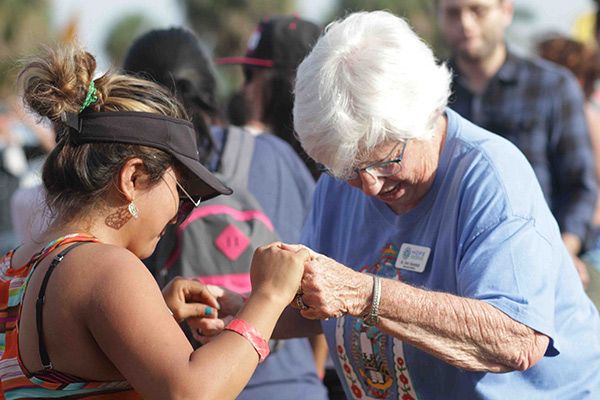

You can see the full photo report here!
![]()
Spring and Summer, 2015: Fair Food Program consolidates gains in Florida, expands to six new states along eastern seaboard
With the 2014-2015 season in the books, the fourth complete season of the Fair Food Program in the Florida tomato industry, the Fair Food Standards Council shares the latest numbers from the fields (don’t forget to check back soon for the FFSC’s annual report, coming in early February!):
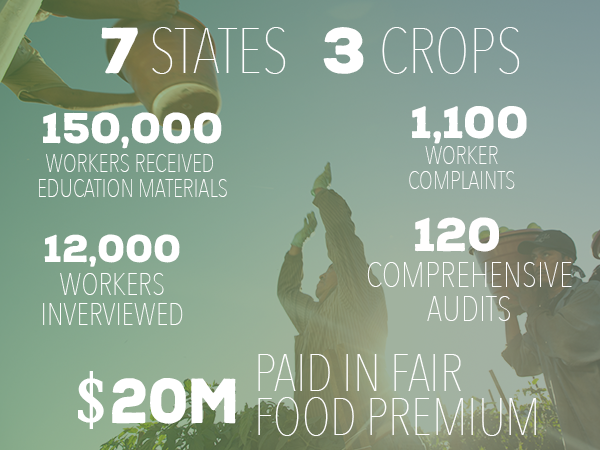
“We want these changes to exist not only for Florida farmworkers, but for all farmworkers…”
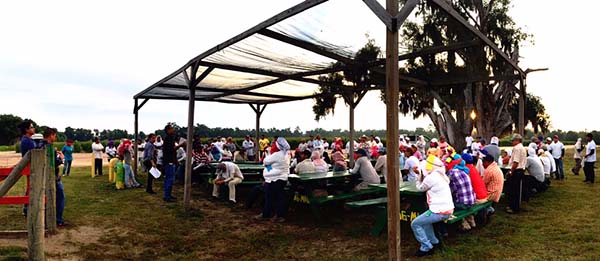
The CIW education team’s reflection on FFP expansion northward:
“The Fair Food Program has arrived, for the first time, in the northern states. After so many years of fighting to protect the rights of workers, we are now at a turning point, opening new doors. The workers at the northern farms, after quietly listening to our presentation, were excited to hear about their rights under the FFP, commenting: “Things have really gotten better in Florida, it is very good that they are coming up to new states. Where else will they be? When will get you get to more places?”
The growers also gave us a cordial welcome, announcing to the workers that we would all be “working together” to implement these new rights, “to make things better for everyone.”
This is what we’ve always wanted, what we’ve been fighting for. We want these changes to exist not only for Florida farmworkers, but for all farmworkers. All workers should have the right to speak freely when they are facing violence, sexual harassment, or harsh conditions in the industry. The CIW’s work continues — we have never stopped, and this is a clear sign that our work is bearing fruit, and we are moving forward.”
![]()
July, 2015: Ahold signs Fair Food agreement with CIW
“Ahold USA is the first of the country’s major grocers to join the program and, as such, not only will its partnership help propel to new heights our efforts to protect farmworkers’ rights, but we believe its market leadership will send an invaluable message to the rest of the grocery industry that social responsibility is greatly strengthened when workers, suppliers and retailers work together toward a more modern, more humane agricultural industry.” Gerardo Reyes, CIW
Immokalee, FL, July 29, 2015 – Ahold USA today became the first of America’s major grocers to join the Coalition of Immokalee Workers’ (CIW) Fair Food Program, the widely-acclaimed partnership to improve the lives of the country’s farmworkers. Ahold USA is the parent company of Stop & Shop, Giant Foods of Landover, Giant Foods of Carlisle, Martin’s and online grocer Peapod. With nearly 780 supermarkets across 14 states and the District of Columbia and 50 million customers each month, Ahold USA companies together represent one of the largest food retailing groups in the country. […]
[…] James McCann, Chief Operating Officer of Ahold USA, said, “Ahold USA’s companies are deeply committed to responsible practices throughout their operations and to providing customers with great products at great prices from suppliers who share our dedication to strong ethical standards and fair treatment for workers. The cornerstone of this commitment is the Ahold Standards of Engagement, which commit our companies’ suppliers to these values. The Fair Food Program is a time-tested leader in improving the lives of agricultural workers, and we have observed the Program’s success over the past several years. Our companies and our customers care about the welfare of workers in our supply chain, and we believe now is the right time to begin an important new chapter in our partnership with the CIW.”
As part of this partnership, Ahold USA’s companies will:
- Continue to purchase Florida tomatoes only from growers who participate in the CIW’s Fair Food Program, and expand the Fair Food Program’s standards to farms of participating growers in other states;
- Work with the CIW to ensure timely, periodic inspections and audits of the participating farms that supply Ahold USA’s companies;
- Pay a premium on tomatoes purchased from participating growers that growers will pass on to field workers;
- Provide additional financial support for the Fair Food Standards Council, CIW’s partner in monitoring compliance by participating growers with the Fair Food Program standards; and
- Support the Fair Food Program with expanded marketing and advertising, including in-store displays, online visibility and education materials for associates at Ahold USA companies.
August, 2015: CBS Sunday Morning runs in-depth story on Fair Food Program
“How the Fair Food Program is making a difference for struggling migrant farm workers…”
Here is an excerpt from our original post on the CBS piece:
Yesterday morning, as they do every week, millions of viewers across the U.S. tuned into CBS News Sunday Morning, but this time they were in for a rare treat on network television: an excellent, in-depth report on the CIW’s Fair Food Program. Brought to us by correspondent Mark Strassmann and producer Mark Hudspeth, the piece traced the hard-fought transformation of Florida’s fields from the “Harvest of Shame” days in 1960 to what is being called the best working environment in American agriculture in the New York Times today. The CBS Sunday Morning “cover story” featured not only interviews with CIW members, but also with representatives of the Fair Food Standards Council, participating growers, and buyers such as Whole Foods, in whose produce aisles the Fair Food label recently debuted. […]
[…] In addition to telling the story of the Fair Food Program, CBS Sunday Morning identified the major U.S. supermarkets that remained stubbornly opposed to the progress taking root in the fields — supermarkets like Publix. And Publix’s response — or rather, the company’s stale attempt to justify its decision to dodge responsibility, both to farmworkers and to their own consumers — fell completely flat with CBS Sunday Morning’s astute, ethically-minded audience. […]
[…] In the 21st century, consumers have come to expect far more from their grocers than public relations pablum when it comes to social responsibility. Real, verifiable protection of fundamental human rights in corporate supply chains is no longer some vague aspirational goal, but rather the starting point for social accountability in the age of the internet, social media, and ever greater consumer choice. There can be no doubt that, after Sunday’s show, companies like Publix, Kroger and Wendy’s will be fielding many more questions in the days and months ahead about why there is no Fair Food label in their stores — and struggling, more than ever, to provide an answer.
In the wake of last week’s news of the Ahold joining the Fair Food Program, and now of this powerful new piece from CBS News, the pressure is growing on Publix and other retailers still pining for the good old days to step up to the modern standards of social responsibility, to the new day where farmworkers play a leading role in the monitoring and protection of their own rights…” read more
December, 2015: United Nations invites CIW to speak at Annual Forum on Business and Human Rights in Geneva
“…a powerful example of the Protect, Respect, and Remedy pillars (of the UN General Principles)”
Below is an excerpt from our original post on CIW’s presentation at the UN:
Praised variously as “inspiring”, “impressive”, and “powerful”, the Fair Food Program was lifted up by the panel organizers as a model with “so many lessons to learn for cases around the world.” Toward that end, the CIW was invited, along with Fair Food Program participating buyer Compass Group and the US Department of Labor, to present on how the Fair Food Program works and the nature of the unique collaboration among workers, retail corporations, and government that is revolutionizing farm labor rights enforcement. […]
[…] Following a second set of presentations by worker and corporate representatives involved in a dispute taking place in the Cambodian garment industry and a subsequent question and answer period with the audience, the BHRRC’s Bloomer summed up his impressions from the event, thanking the participants for “an incredibly inspiring panel” and concluding:
I think what we’ve heard here is firstly the power of the brands to transform their supply chains when they cooperate with workers and with the government…
… I think we’ve heard the fundamental nature of the empowerment of workers and their representation and the respect for that representation that needs to come from the brands…
… I’m quite frankly stunned that there is a code of conduct that was drafted by the workers. For that to be adopted by the brands is an inspiring event…
… Another one is the issue of enforcement… in terms of the market consequences for not doing what you say you will do. Those market consequences are fundamental. The fact that there are workers now empowered across a supply chain looking and ensuring that enforcement is critical, as well as that there is a state that’s really prepared to show rigor in upholding workers’ rights…
In short, the UN forum was an excellent opportunity for the CIW to present the Fair Food Program — and the Worker-driven Social Responsibility (WSR) model of which it is a leading example — to the world, a world in which millions of low-wage workers toil today in corporate supply chains, suffering sub-poverty wages and inhuman working conditions without recourse to remedy. We thank the United Nations for inviting us to participate, and look forward to working together with the UN Working Group on Business and Human Rights and with labor rights organizations from Vermont to Bangladesh to expand the protections — and realize the tremendous promise — of the WSR model to supply chains around the world…” read more
BONUS HIGHLIGHT: CIW joins major musical artists on stage at John Lennon tribute concert!
Just before the holiday season hit, artists from Willie Nelson to Aloe Blacc and Tom Morello gathered in New York City for a blow-out concert to celebrate the legendary John Lennon’s 75th birthday. To end this year-in-review post on a high note, we’re including a bonus video from that concert, with the CIW’s Leonel Perez and Daniel Cooper Bermudez on stage (stage right, in fact, wearing Justice for Farmworkers and Fair Food t-shirts, respectively) alongside Tom Morello and other social justice leaders from across the country, performing Lennon’s “Power to the People”. Enjoy!:

